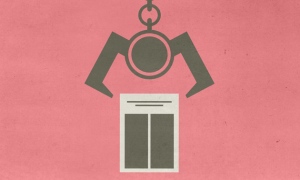Scientific publishers have deleted more than 120 articles generated on the computer.
 For two years now, Cyril Labbé, a scientist from the University of Grenoble (France), has been researching collections of publications by major scientific publishers and compiling a list of “fake” scientific articles compiled using generators of scientific texts .
For two years now, Cyril Labbé, a scientist from the University of Grenoble (France), has been researching collections of publications by major scientific publishers and compiling a list of “fake” scientific articles compiled using generators of scientific texts .As it turned out, trolling the scientific press is a more widespread phenomenon than one might have supposed. Publishers themselves have already paid attention to his work - and they began to gradually remove fake articles from archives and collections based on the results of scientific conferences. Thus, the German Springer and the American IEEE to date, have removed more than 120 scientific articles for the years 2008-2013.
Including Springer deleted 16 articles, and IEEE - more than 100. Among these works, for example, an article from the final collection of the International Conference on Quality, Reliability, Risk, Support and Secure Design, which was held in 2013 in Shanghai. The authors of the TIC: e-commerce construction methodology (“TIC: a methodology for the construction of e-commerce”, partial copy ) talk about “the current status of efficient archetypes and developments in the field of congestion control emulation”, but research, they "concentrated their efforts on refuting the fact that spreadsheets can be based on knowledge, while being empathetic and compact."
The journal Nature has contacted the indicated authors of the scientific work. One of them said that he first heard about the publication in December 2013 and did not know that it was listed in the co-authors.
')
However, such works effectively increase the citation rating of individual scientific institutions and the number of publications with individual scientists.
Perhaps the first online scientifically based text generator SCIgen was developed in 2005. The program is free to use anyone. In Russian, a similar development is conducted by Yandex with its generator of essays .
Cyril Labbé admits that he has no idea how such scientific articles go to the press. He says that most of the suspicious conferences are being held in China. The generated articles are easy enough to detect: Labbe developed an automatic document scanner .
The French scientist began working with fake articles in 2010. For example, in April 2010, with the help of SCIgen, he generated 102 fake articles and published them on behalf of the fictional author Ike Antkare. The publications were included in the Google Scholar database, and the h-index citation index for Antkara soon rose to 94 points, which made the virtual character 21st in terms of citation by scientists in the world at that time.
Source: https://habr.com/ru/post/213891/
All Articles